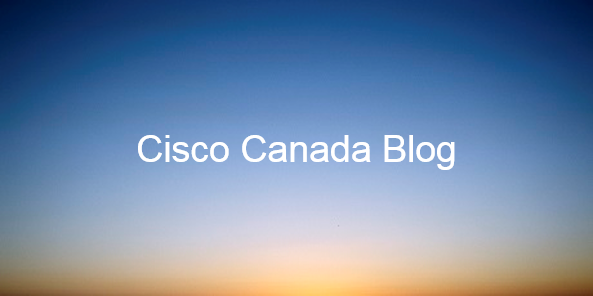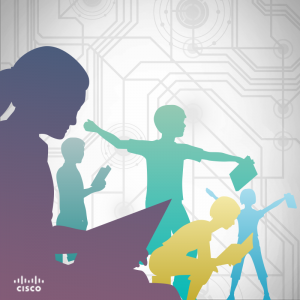
The Internet of Everything Allows Librarians to Embrace Broader Educational Mandate
3 min read
 I love my local library, but the Internet has deeply changed the way I approach books and other education resources.
I love my local library, but the Internet has deeply changed the way I approach books and other education resources.
For more than a decade, I searched for books on Google and compared prices on Amazon before I decided to buy. Now I use my tablet for quasi-unlimited access through the university library, my local library, as well as through subscription-based services like O’Reilly Safari. For me, it’s all about spending time doing things I love, like reading great books. I wish I could keep a copy of all those books at home, but there is simply not enough space for all of them, and it would take forever to find the one I’m looking for. In this case, I find that digital books are very convenient; nothing beats a “just-in-time” process.
On that same note, it would be a mistake to think that we don’t need libraries or librarians anymore.
The ability to find order and meaning through an exponentially growing and overwhelming amount of resources is more important than ever. Librarians are experts in finding relevant information from trusted sources, they are acquainted with rare and valuable collections and their mission to curate this knowledge gives them an educational mandate.
MOOCs and Libraries: Like Vanilla and Chocolate
Recently, librarians from the U.S. and Canada met at iSchool, University of Toronto, to push the envelope in education and discuss the roles for libraries, Massive Open Online Courses (MOOCs), e-learning and gamification. Coming from my K-12 teaching perspective, at first I did not fully appreciate why librarians would be so vested in MOOCs. Libraries and MOOCs sounded as different as vanilla and chocolate to me. Both flavors are certainly tasty and as it turns out, blend very well together. Libraries still hold an important place in education, even though the link between the technologically advanced MOOCs and the bookshelves may not be obvious to everyone.
Libraries are Innovation Hotspots
Often times, librarians are early adopters of technology. I learned first about Greasemonkey, the Firefox plugin, on the Ryerson University’s library website. I used their script quite a bit to spot those Amazon books that weren’t available at the library. They had one of the first rich web 2.0 applications on campus, giving an early taste of the 21st century student experience (room bookings, e-book, renewal, access through mobile, etc).
Librarians can increase your productivity tenfold, even with common tools like Google search. For example, they were among the first to use and teach about social media and they can optimize search for academic articles using a variety of great resources and tools. Think of Librarians as friends opening the door to the virtual world!
An Educational Mandate for Librarians
MOOCs are a phenomenon coming from higher education and made popular by a New York Times article last year. I dedicated my last blog to explain how MOOCs are fueled by the Internet of Everything. Librarians have a critical mission in higher education, as critical as Virgil’s in The Divine Comedy . They guide students through what could be a complex amount of scholarly research and theories produced over centuries. In fact, librarians are teaching about how to use resources online and on-site, through workshops, presentations embedded in classes and one-on-one interaction. Why not use MOOCs?
Librarians are embracing their educational mandate, using MOOCs to reach a broader audience. They can use xMOOCs to teach about library services, citizenship, basic resume and interview skills and special collections. The advantage of xMOOCs is their ability to scale massively, but interaction and feedback is arguably better in cMOOCs. Librarians can also use cMOOCs to build a community of learners around their libraries. They can focus on curating content and bringing in interesting guest speakers to strengthen the conversation.
In cMOOCs, learners are part of the process in constructing the course, bringing in and discussing new content to enrich the shared understanding. All of the learning happens online in the social media sphere through tools like Twitter, Flipboard, YouTube and WebEx social. Fancier organizations might use a Learning Management System (LMS) like Desire2Learn or Moodle, but a simple website such as WordPress is enough to get started. The most important point is to engage the community of learners.
The cloud offers great opportunities that librarians are eager to embrace. They can rent a website or an entire virtual computer at the click of a button, for a small fee. In larger organizations, the IT department can consider building their own cloud with partners such as ONX, or they can use technology like Cisco UCS director, to monitor cloud consumption until they are ready to build their own data center. The key benefit is flexibility and efficient allocation of resources.
More than ever, libraries can embrace their educational mandate to reach out to their communities and to the world. Technology makes it simple to provide the needed services on the fly for a small fee. All for the love of learning and reading.
In future posts, I’ll discuss more about the great contributions happening at a library close to you! In the meantime, join the conversation by following @CiscoCanada on Twitter!
2 Comments
Hello, it looks good from here but I asked my digital media colleagues to confirm. Thanks for letting us know.
Hmm is anyone else having problems with the images on this blog loading?
I’m trying to determine if its a problem
on my end or if it’s the blog. Any feed-back would be greatly appreciated.